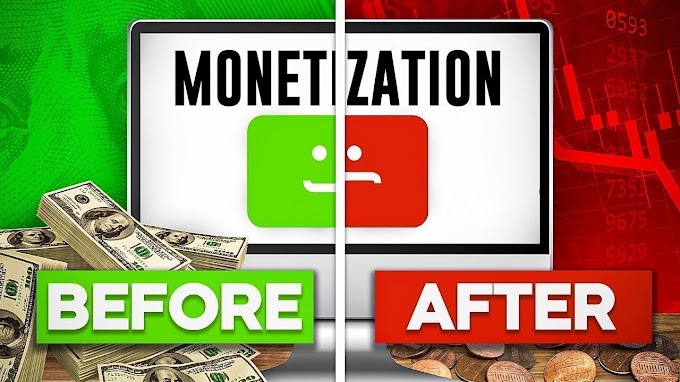Source: Spencer Selover/Pexels
One of the most common questions that comes up for people learning to meditate is about dose. In other words, How much should I meditate?
In the evidence-based Mindfulness-Based stress Reduction (MBSR) program, participants are encouraged to meditate for about 45 minutes a day. That can be hard for us to do. At Brown University, where we offer a certificate in MBSR teacher training, we are often asked if less meditation is OK.
Some mindfulness meditation traditions recommend starting with just five to 10 minutes a day, and seeing how that feels, and then maybe increasing it if we like, or not. In fact, I remember hearing a Zen master share that if meditation isn’t enjoyable, then we shouldn’t do it.
So where does that leave us in terms of how much we should meditate or practice mindfulness each day?
The Evidence
The scientific evidence in this area is surprisingly lacking. During my Ph.D. in pharmacology and therapeutics, I was taught that in drug development, we give different doses of a drugs to identify the optimal dose that maximizes benefit and minimizes adverse events, participant burden, and cost. The same can be done for mindfulness and meditation studies, but mostly hasn’t. That is an important gap.
A team at Harvard University and the University of Connecticut came to the rescue (Greenberg et al. 2018) with a dosing study on a yoga intervention that randomized participants to one of three daily home practice doses: 10 minutes, 40 minutes, or the choice between 10 or 40 minutes. Which group do you think improved stress the most? My money was on the group that got to choose, and I was wrong. It was the group assigned 40 minutes. In fact, that was the only group to achieve significant stress reduction, which was maintained 12 weeks after the program ended. This suggests that more practice may be of benefit.
We recently completed a study in the mindfulness-based college program which randomized participants to one-and-a-half-hour weekly training sessions or two-and-a-half-hour weekly training sessions. We are still analyzing the data and the findings have not been peer-reviewed yet, so take this with a grain of salt, but we found that while participants in the briefer program were a little more likely to recommend it to family and friends, outcomes such as depression symptoms and perceived stress were a little better in the larger dose group. So, maybe mindfulness training duration does make a difference.
In fact, another scientific paper explored the effects of mindfulness meditation retreats. The researchers combined data from 72 mindfulness intervention studies. They found that, in mindfulness-based programs which typically meet for about two and a half hours once weekly over eight weeks, the studies on programs that offered a retreat day in addition to the weekly sessions tended to have bigger effects on self-reported mindfulness than the programs that did not offer retreats (Visted et al, 2014). Again, this suggests that two matters, and maybe the more the better, at least within reason.
Self-Reflection
If you like, perhaps consider something that you have gotten really good at, such as playing a musical instrument or sport, or perhaps being a parent, or a worker in a particular field. Did you find that the more you practiced, the better you tended to get at it? That is a common experience. But there can also be moments where if we practice too much, we can start to dislike it, and even getting risky burned out and stopping it altogether. The same analogy may apply to mindfulness.
For example, Willoughby Britton at Brown University wrote the paper “Can Mindfulness Be Too Much of a Good Thing? The Value of a Middle Way” (Britton 2019). That paper suggested we may find an optimal meditation dose that is between the extremes of practice amounts, as many psychological or physiological processes often follow an inverted U-shaped trajectory where their typically positive effects eventually turn negative. For example, there is some evidence that multi-day retreats with minimal participant support and little access to skilled teachers to help provide context, support, and feedback, can increase the risk for adverse events (eg, Lindahl et al. 2017). We need to be careful that if we go big, we do so in a supportive environment led by skilled teachers, and that now is a good time for us to go down that path.
Tuning in to Find Our Personalized Optimal Dose of Meditation
It can be a temptation for us to look for the minimal effective dose, and that’s fine. In fact, it’s probably human nature. For the first 15 or so years of my meditation practice, I meditated about 10-15 minutes a day, and it made a big positive difference in my life. It was easy enough to fit into my day. As I became more serious, and took MBSR, which recommends 45 minutes a day of practice, I was asked to do something I hadn’t done before. And I was at a time in my life when I was eager for it. I’ve never gone back to the 10-15 minutes each day, as I now find 30-60 minutes a day makes my life better, and likely even saves me more than that amount of time each day due to more quickly falling asleep, and making better time-saving decisions. But that’s just me.
Mindfulness Essential Reads
From my perspective, especially given the lack of data on the ideal mindfulness meditation dose, the best expert to advise you on the optimal dose is you. If you like, consider running an experiment where you meditate for a certain amount of time each day for a period of time, such as three to 10 days. Then, either increase or decrease the dose for three to 10 days. Keep running that experiment, which is actually similar to a study design type called an “n-of-1” study. In time you will begin to see if and how meditation has a positive or negative impact on your life, and if there is an optimal dose. The beauty of life is that for most of us (and all of us who can read this post), it gives us many days, weeks, months, and years to live. Mahatma Gandhi, in his autobiography The Story of My Experiments with Truth, shared how he ran his life like a series of experiments. He kept doing what he worked and letting go of what he did n’t.
I invite you to run an experiment in your life, noticing in a nonjudgmental curious way what dose of mindfulness meditation is ideal for you, at this phase of your life, recognizing the optimal dose might be different now than in the past or future. Whatever the answer is (even if it is zero) is fine. There are many paths to happiness and health, and part of our journey in life is to find out what those paths are for us personally, and how much time and effort is ideal for us to spend on that path. Wishing you the best on your journey.





0 Comments
Thanks For Massage